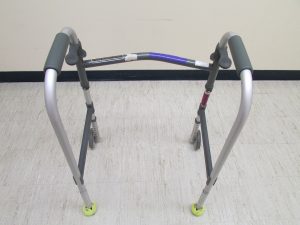I was reading an article about the latest study touting the benefits of exercise. It was stunning. The study involved analyzing the brains of two groups of mice: one group in a cage with an exercise wheel; the other in a cage without the wheel. Researchers watched the mice for four weeks. Predictably, the mice with the exercise wheel exercised; the mice without the wheel did not. After a month the scientists measured brain activity in both groups.
Turns out, running and other forms of exercise produce a protein in the brain called “brain-derived neurotropic factor” or BDNF (I feel smarter just writing that name). This stuff is very good for your brain. BDNF promotes the growth and vigor of neurons. BDNF has also been shown to strengthen the synapses that connect neurons, which allows the brain to function better. Low levels of BDNF has caused cognitive decline in people and animals. Exercise increases levels of BDNF in the brain.
Exercise Promotes BDNF and Ketones
In the study scientists discovered that in the brains of mice who exercised regularly, a molecule which blocked the growth of BDNF was less effective. As a result, much more BDNF was produced in the mice who exercised. Sadly but predictably, less BDNF was produced in the sedentary mice. Researchers also found that the exercising mice produced ketones which make their way to the brain and fight off the bad molecules and further promote the growth of BDNF. The guy who directed the study, NYU professor Moses Chao, said: “It’s incredible just how pervasive and complex the effects of exercise are on the brain.”
You can check out the new study here. It’s the latest in a long line of studies which prove time and again that exercise is vital to your health. Seriously, people have to exercise. Not exercising causes all kinds of physical and mental problems.
Exercise Changed My Life
I started running nine years ago. I was several years into my law practice and had two young children. I was out of shape and stressed out. I began running. The first day I could run for only three or four minutes. But I kept at it. In three months I had lost twenty pounds. Six months later I ran a half marathon. I don’t need a study to know how exercise improved my life: my stress level dropped (I run often during trials); I slept better; I ate better; I felt better.
Medical Device Victims Deprived of Exercise
One often unacknowledged injury that is inflicted on victims of medical device failures is that it prevents people from maintaining a regular exercise regimen. Many of my clients who suffered an artificial hip device failure could barely walk, much less run three miles. Or swim, or bike, or play golf. One of my clients was a highly skilled tennis player. Her Depuy ASR artificial hip failed, and then the revision surgery failed. She can no longer play tennis, which deprives her of one of the great joys of her life, but also deprives her of vital exercise. This to me is significant injury.
Not Just Failed Artificial Hips and Knees
 All kinds of medical device failures can make regular exercise difficult if not impossible. Women with failed transvaginal mesh often report severe pelvic or groin pain; in those cases exercise may not be possible, and certainly not a priority for the injured woman. Some of the symptoms of a failed IVC filter include chest pain, neck pain, lightheadedness, and shortness of breath. It is hard to run a 5K when you suffer from these physical ailments. In fact, your doctor may even forbid rigorous exercise if you have a broken or migrated IVC filter in your body.
All kinds of medical device failures can make regular exercise difficult if not impossible. Women with failed transvaginal mesh often report severe pelvic or groin pain; in those cases exercise may not be possible, and certainly not a priority for the injured woman. Some of the symptoms of a failed IVC filter include chest pain, neck pain, lightheadedness, and shortness of breath. It is hard to run a 5K when you suffer from these physical ailments. In fact, your doctor may even forbid rigorous exercise if you have a broken or migrated IVC filter in your body.
My Simple Advice (That You Didn’t Ask For)
Exercise is essential to a healthy life. Study after study shows it helps the mind and body. I know it’s not easy, but if at all possible you have to find a way to exercise with a failed medical device implanted in your body. Although running may be out of the question, you can try to get in a pool and move around, even if you just tread water or merely move your arms. If walking does not hurt, walk. Ask your doctor or your physical therapist what exercises you can do if you have a failed artificial hip or other failed medical device.
And as for compensatory damages in a product liability case, the inability to exercise regularly should be a part of a settlement discussion. The courts should approach lost exercise the way they acknowledge loss of consortium. I see daily exercise the way financial planners speak of retirement savings: we all know that delaying regular savings can harm your ability to retire. With lost compounded interest and capital gains, every year you do not save will sharply reduce your ultimate retirement funds. Exercise should be viewed the same way: Each year you are prevented from exercising will do damage to your long-term health and well-being. Think of all the BDNF you failed to generate with one, two, or three years of a sedentary lifestyle.
So if at all possible, exercise.
 North Carolina Product Liability Lawyer Blog
North Carolina Product Liability Lawyer Blog


